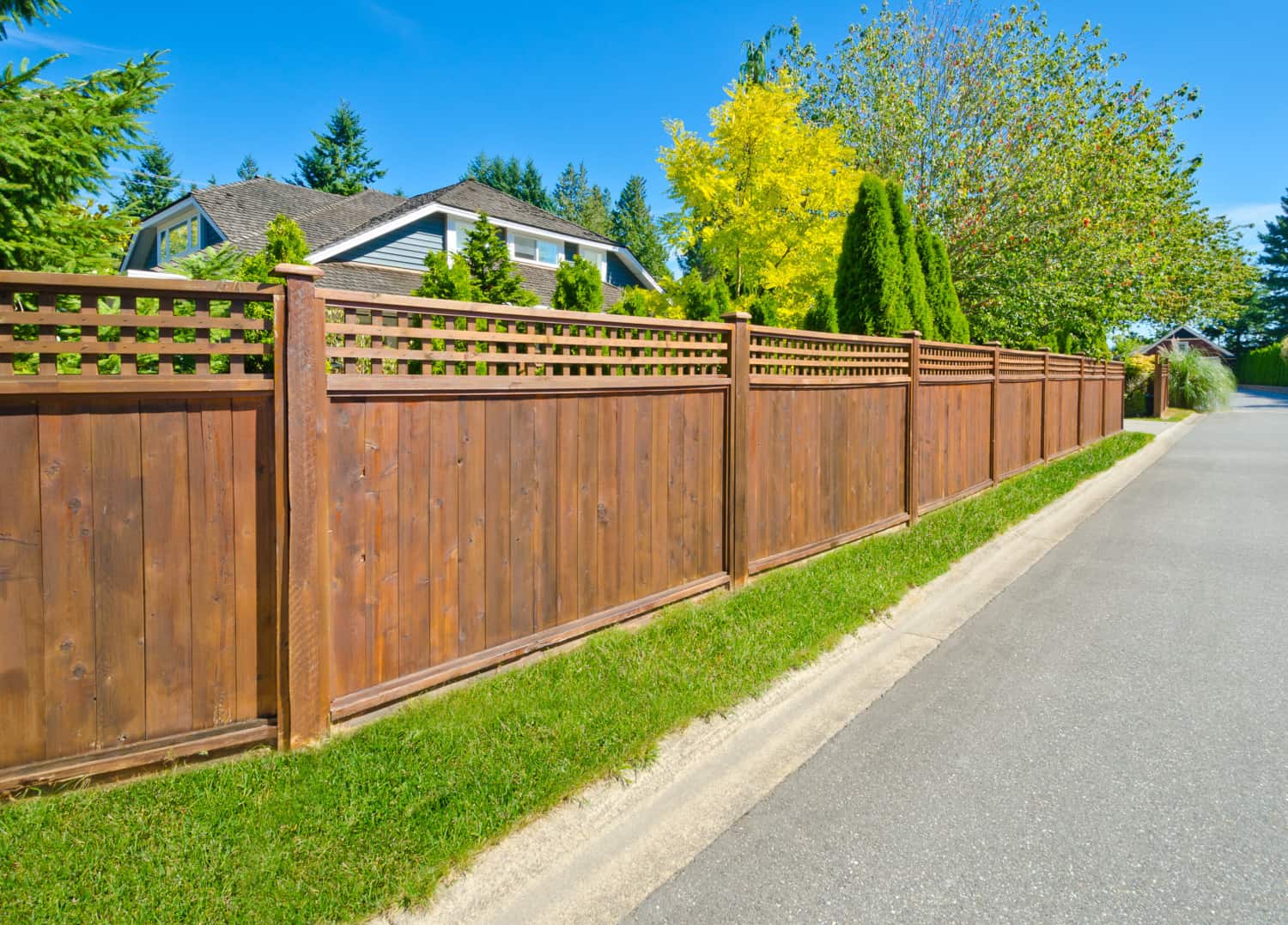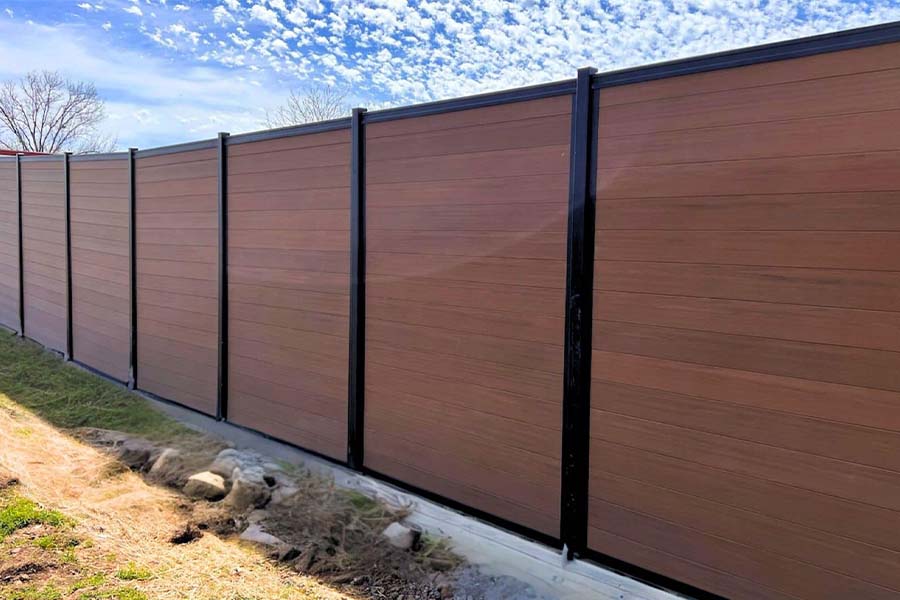Featured

When setting up a fencing, picking the right product is crucial to stabilizing performance, visual appeals, and budget plan. Wood, vinyl, and aluminum are among one of the most commonly chosen fencing products, each with its strengths and disadvantages. This overview explores the advantages and disadvantages of these alternatives to assist you make an educated choice.

Timber Secure Fencing. Pros:. All-natural Charm: Timber's ageless appeal can enhance any type of residential or commercial property with its cozy and traditional appearance. Customizable: You can paint, stain, or sculpt wood to fit your design preferences. Affordable: Timber secure fencing is at first extra affordable compared to some various other materials. Eco-friendly: As a renewable energy, timber is eco-friendly and typically taken into consideration green. Cons:. Maintenance-Intensive: Regular securing, paint, or staining is needed to stop damage from weather condition and parasites. Prone to Decay: Without appropriate treatment, wood can rot, warp, or fracture gradually. Shorter Lifespan: Typically, wood fences last 10-15 years, depending upon the type of timber and maintenance. Timber is a wonderful alternative for those who value looks and are ready to buy regular upkeep to protect its look and durability.
Vinyl Secure Fencing. Pros:. Reduced Upkeep: Plastic needs marginal treatment-- just periodic cleaning with soap and water. Weather Resistant: It does not warp, rot, or surrender to insect damages, making it highly sturdy in different climates. Long life: Plastic fencings can last 20-30 years with little to no repair work. Design Selection: Available in a vast array of designs, shades, and structures, consisting of wood-like looks. Disadvantages:. Greater First Cost: Vinyl fencings are extra pricey ahead of time contrasted to timber. Vulnerability to Cold: In exceptionally cool weather, vinyl can end up being brittle and prone to fracturing. Restricted Fixing Options: Matching replacement panels can be challenging if damages takes place. Vinyl fence is suitable for house owners seeking a durable, low-maintenance solution that offers contemporary adaptability.

Aluminum Fencing. Pros:. Rust-Proof: Aluminum stands up to rust, making it an excellent selection for wet or moist settings. Durable: Regardless of being lightweight, aluminum is strong and can hold up against severe climate condition. Reduced Maintenance: It calls for marginal maintenance, normally just periodic cleansing. Long Life expectancy: Aluminum fencings can last decades without considerable wear and tear. Classy Design: Frequently utilized for ornamental purposes, light weight aluminum fencing adds a smooth, advanced aim to residential properties. Cons:. High First Financial investment: Aluminum fences are amongst the pricier choices on the market. Less Privacy: The open styles typical with light weight aluminum fencing don't give much privacy. Susceptible to Damage: While durable, aluminum can dent if struck with enough force. Light weight aluminum is an excellent selection for house owners prioritizing visual appeals and toughness without calling for much upkeep.
Making Your Choice. When choosing in between aluminum, timber, or vinyl fencing, consider your top priorities:
Timber fits those who value an all-natural appearance and don't mind placing in maintenance effort. Plastic is the most effective alternative for those looking for a low-maintenance, weather-resistant option. Aluminum provides smooth style and long-lasting resilience but might lack personal privacy. By carefully analyzing these products' features, you can select a fence that matches your residential or commercial property while fulfilling your visual and useful demands.
Latest Posts
Full Circle Strategic Marketing - Skyrocket Revenue with Data-Driven Marketing
Published Apr 20, 25
2 min read
Why Choose Washington Fence for Your Secure Fencing Demands
Published Apr 20, 25
1 min read
Rain Gutter Installment and Maintenance Tips for Illinois Weather
Published Apr 20, 25
1 min read
More
Latest Posts
Full Circle Strategic Marketing - Skyrocket Revenue with Data-Driven Marketing
Published Apr 20, 25
2 min read
Why Choose Washington Fence for Your Secure Fencing Demands
Published Apr 20, 25
1 min read
Rain Gutter Installment and Maintenance Tips for Illinois Weather
Published Apr 20, 25
1 min read